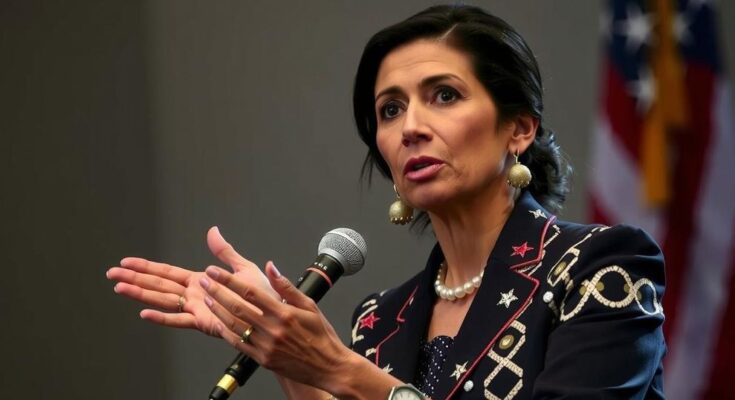Tulsi Gabbard faces scrutiny over her controversial past as she is nominated by President Trump for the role of Director of National Intelligence, with concerns raised over her positions on Syria and Russia, potentially complicating U.S. diplomatic intelligence relations.
Former Congresswoman Tulsi Gabbard is under renewed scrutiny following her nomination by President-elect Donald Trump as the United States Director of National Intelligence (DNI). Her past interactions, particularly a controversial 2017 visit with Syrian leader Bashar al-Assad and her statements regarding Russia’s invasion of Ukraine, have raised alarms among former national security officials and legislators. Critics of Gabbard express concerns about her perceived alignment with anti-interventionist sentiments, suspecting her capability to foster trust with foreign intelligence allies. Entrusted with oversight over 18 spy agencies, her confirmation could provoke substantial debates in the Senate regarding her past positions and their implications for U.S. intelligence diplomacy.
The role of the Director of National Intelligence (DNI) is pivotal, overseeing the integration of intelligence across various agencies and advising the President on national security matters. Gabbard’s candidacy is contentious due to her anti-war stance and her questioning of U.S. intelligence assessments, particularly regarding Syrian chemical attacks. Her meeting with Assad and subsequent remarks regarding the Russia-Ukraine conflict have positioned her as a polarizing figure in U.S. foreign policy discourse. Given the current geopolitical landscape, the implications of her potential confirmation are significant and warrant careful scrutiny.
In conclusion, Tulsi Gabbard’s nomination as DNI introduces a layer of complexity to U.S. intelligence operations, highlighted by her controversial history and opinions that diverge from mainstream U.S. policy. The apprehensions raised by national security experts and political figures underscore the potential risks to intelligence-sharing relationships with allies. As the Senate prepares to evaluate her confirmation, the discourse surrounding her past and its impact on U.S. foreign affairs will be pivotal to understanding her suitability for this critical role.
Original Source: www.bbc.com




